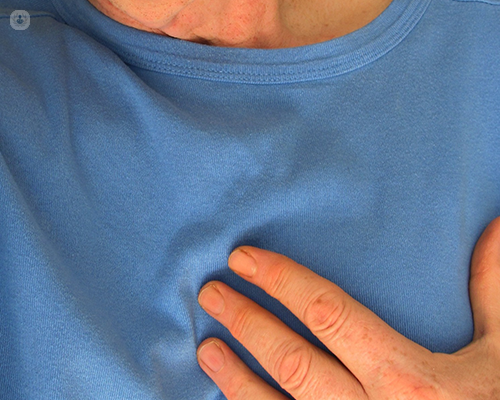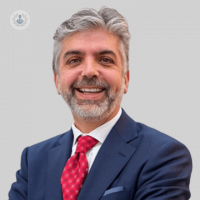Aortic valve surgery: Procedure, recovery, and long-term care
Written in association with:Aortic valve surgery is a critical procedure aimed at addressing various conditions affecting the aortic valve, a crucial component of the heart's function.
Mr George Asimakopoulos, renowned cardiac surgeon, offers an expert insight into aortic valve surgery, discussing the procedure, recovery expectations, and long-term care.

Why is aortic valve surgery necessary?
The aortic valve controls the flow of blood from the heart's left ventricle to the aorta, the main artery supplying blood to the body. Over time, the aortic valve can become damaged and develop conditions such as aortic stenosis (narrowing) or aortic regurgitation (leakage), which impact blood flow. These conditions can lead to symptoms like chest pain, shortness of breath, fatigue, and in severe cases, heart failure.
Aortic valve surgery becomes necessary to repair or replace the damaged valve, restoring normal blood flow and alleviating symptoms. Without surgical intervention, these conditions can worsen over time, potentially leading to life-threatening complications.
How is aortic valve surgery performed?
Aortic valve surgery is typically performed under general anaesthesia and involves accessing the heart through an incision in the chest. The cardiac surgeon then carefully accesses the aortic valve. Depending on the condition and the chosen approach, the surgeon will proceed with either repair or replacement:
Valve repair
Valve repair involves preserving the patient's own valve tissue and correcting any structural abnormalities. This approach is beneficial as it retains the natural anatomy of the heart and may reduce the need for long-term medications.
Valve replacement
Valve replacement is performed when repair of the valve isn’t possible. There are two main types of replacements:
- Mechanical valve: These valves are made from durable materials like titanium or carbon. They are long-lasting but require lifelong anticoagulant therapy (blood thinners) to prevent blood clots.
- Biological valve: These valves are usually made from animal tissue or from donated human tissue. They don’t require lifelong anticoagulation but may need replacement after 10 to 15 years due to natural wear.
The choice between mechanical and biological valves depends on factors such as age, lifestyle, overall health, and preference for long-term medication management.
Advancements in surgical techniques have enabled some patients to undergo minimally invasive aortic valve surgery, which uses smaller incisions compared to traditional open-heart surgery. Benefits may include reduced pain, shorter hospital stays, quicker recovery, and less scarring. However, not all patients are candidates for this approach, and suitability depends on individual factors and the surgeon's assessment.
How long does it take to recover?
Initially, patients may spend time in the ICU (intensive care unit) for close monitoring. During this time, the medical team will manage pain, monitor heart function, and assist with breathing exercises. Most patients will remain in hospital for about 3 to 7 days following surgery, depending on their overall health and any complications.
Once discharged, patients will continue their recovery at home. It's essential to follow the discharge instructions provided by the surgeon, which may include restrictions on physical activity, wound care, and medications. Full recovery can take several weeks to months, during which time gradual resumption of activities and cardiac rehabilitation may be recommended.
What will be the long-term follow-up care plan after surgery?
After aortic valve surgery, a structured follow-up plan is crucial for monitoring heart health and the functioning of the repaired or replaced valve. This plan typically includes:
- Regular follow-up visits: Scheduled visits with the cardiac surgeon to monitor recovery progress and assess valve function.
- Diagnostic tests: Periodic tests such as echocardiograms (heart ultrasound), electrocardiograms (ECG or EKG), and cardiac MRI scans to evaluate heart function and valve performance.
- Medication: Depending on the type of valve replacement (mechanical or biological), patients may need medications such as blood thinners (anticoagulants) or medications to control blood pressure.
- Lifestyle modifications: Adopting heart-healthy habits such as a balanced diet, regular exercise, smoking cessation (if applicable), and stress management to promote long-term heart health.
Regular follow-up care aims to detect any potential issues early, optimise heart function, and ensure patients maintain a good quality of life post-surgery.
To schedule an appointment with Mr George Asimakopoulos, head on over to his Top Doctors profile today.


